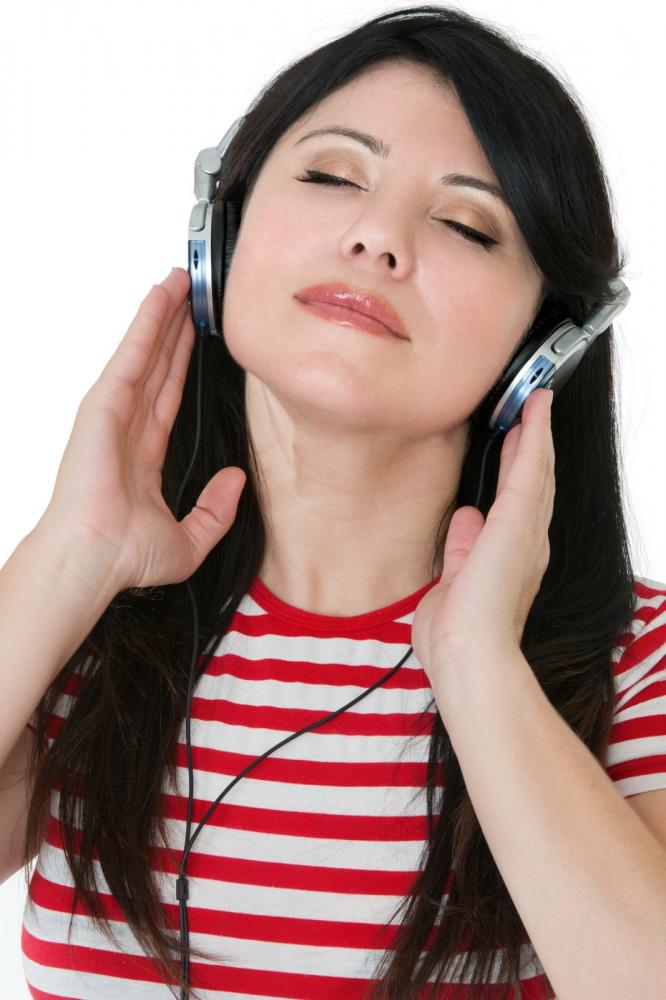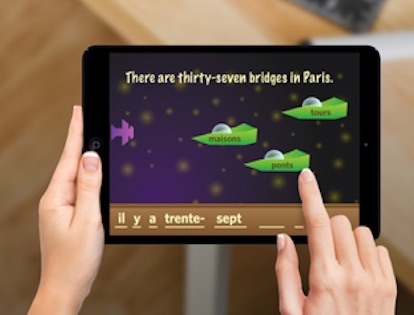Which useful phrases should every traveler know?
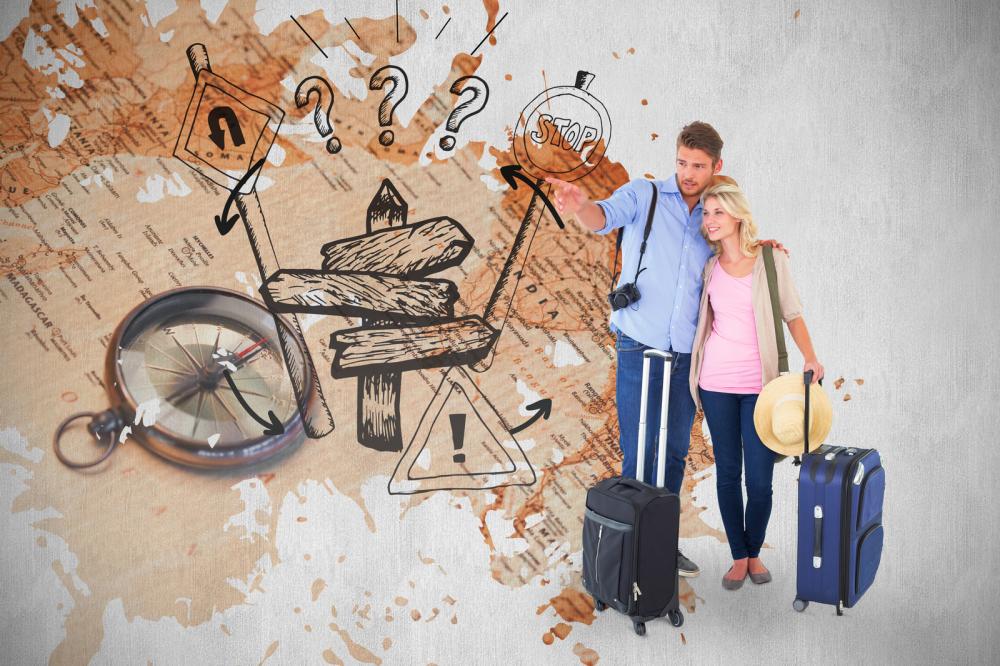 Planning a trip abroad is a lot of fun. Deciding where to go, whether to stay in one place or travel around, etc. can already fill you with the pleasure of anticipation.
Planning a trip abroad is a lot of fun. Deciding where to go, whether to stay in one place or travel around, etc. can already fill you with the pleasure of anticipation.
Now, if it's a country where you don't speak the language, you typically have four choices:
1. Don't bother learning anything new – just rely on your native language, or whatever you already know.
2. Learn and practice a few useful words and phrases, a few minutes a day.
3. Spend time and effort to relearning the language, if you studied it in school.
4. Invest time and effort to learn the language from scratch.
Obviously, your decision depends on other factors as well, including:
• How much time will you spend in the foreign country, or countries?
• How likely is it that your native language will be understood there?
• How much time and/or money can you invest?
For many English speakers who travel abroad, the obvious choice is: Don't learn anything new. That is because English has become more and more a “lingua franca” for travelers. (Pamela Druckerman's recent article in the New York Times points up some pitfalls for monolingual English speakers.)
But think about it. Even if English is your native language and the only one you speak fluently, learning just a few words and phrases of the local language can make your stay in a place so much more interesting and enjoyable. It can become the starting point for more tips and insights, or simply the beginning of a conversation with a local resident - even if it continues in English.
The Case for Useful Words and Phrases
From every country we visited and whose language we don't speak, we have a couple of anecdotes that remind us how useful it was to know at least greetings, polite phrases and some numbers in the language locally spoken.
Several years ago, we visited Japan and China. We learned and practiced the basic numbers, and a few common phrases and greetings: thank you, please, excuse me, good morning, goodbye, etc. For us, knowing the numbers in Japanese and Chinese proved especially useful.
In Hiroshima, we ventured out one evening and found a restaurant  on the second floor of a building. As we entered, we soon realized that nobody spoke English. Nor did anyone speak any of the other European languages we know. The restaurant was crowded. But because we knew the Japanese word “fifteen”, we understood that we could have a table in about fifteen minutes.
on the second floor of a building. As we entered, we soon realized that nobody spoke English. Nor did anyone speak any of the other European languages we know. The restaurant was crowded. But because we knew the Japanese word “fifteen”, we understood that we could have a table in about fifteen minutes.
So, we decided to wait. We had read earlier that it's a Japanese custom to overestimate such waiting times. Still, we were pleasantly surprised that after less than 10 minutes our booth was ready.
It was a memorable Japanese dinner. We had dishes we had never tasted before and savored the sake that overflowed our small ceramic cups. We were glad we had waited.
In China we visited the Great Wall and afterwards our tour guide led us into one of the government-run shops that lined the road. Being able to negotiate prices in Mandarin, proved not only to be fun but also made us feel that we got some bargains. (That was very likely just wishful thinking.)
On a trip driving from Germany to Denmark to catch a ferry, we wanted to get some Danish Krone at a bank ATM. (Denmark, as well as the UK, Sweden, Bulgaria, Croatia, the Czech Republic, Hungary, Poland and Romania don't use the Euro.)
In one of the small towns we drove through, we stopped and asked a passerby: “Undskyld, hvor er en bank?” and immediately got a fast Danish response, which we didn't understand. It prompted us then to ask: “Taler du engelsk”?
And we realized that when you ask for directions in a foreign language, you should also know a few of the typical directional responses, e.g. left, right, straight ahead, around the corner, etc. We then had a very pleasant conversation with the woman in English and she also showed us the way to a Bank ATM.
In Stockholm, Sweden, we asked for directions in Swedish to one of the museums. We were delighted that the older gentleman continued in Swedish when giving us directions. That was maybe a bit unusual for a Swede, as most of them speak English quite well. But we felt great that our 3 months of studying Swedish beforehand paid off. Not only did we understand his directions, but we found the museum quite easily.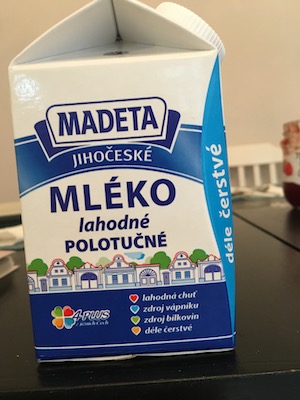 Last year we stayed in Prague, the Czech Republic. (See also European Travel 10 – Prague in 2018). As we had rented an apartment for a week, we went to a neighborhood grocery store for some breakfast items.
Last year we stayed in Prague, the Czech Republic. (See also European Travel 10 – Prague in 2018). As we had rented an apartment for a week, we went to a neighborhood grocery store for some breakfast items.
The young man at the cash register was able to say in English how much we owed. But he did not understand the English words jam/marmalade, butter, cereal, etc. Nor could he explain what the word “polotucné” on the milk carton meant. (We wanted to make sure we weren't buying skim milk. The word in fact means “half fat” or “part skim”, as we later found out.)
We now also look up and practice the foreign words of our typical breakfast items ahead of time, if we travel to a country whose language is new for us . (And we'll add some basic food terms to our Lingo-late Essential Words and Phrases.)
Useful and Essential Words and Phrases
In fact, our experience at our next stop, Budapest, Hungary caused us 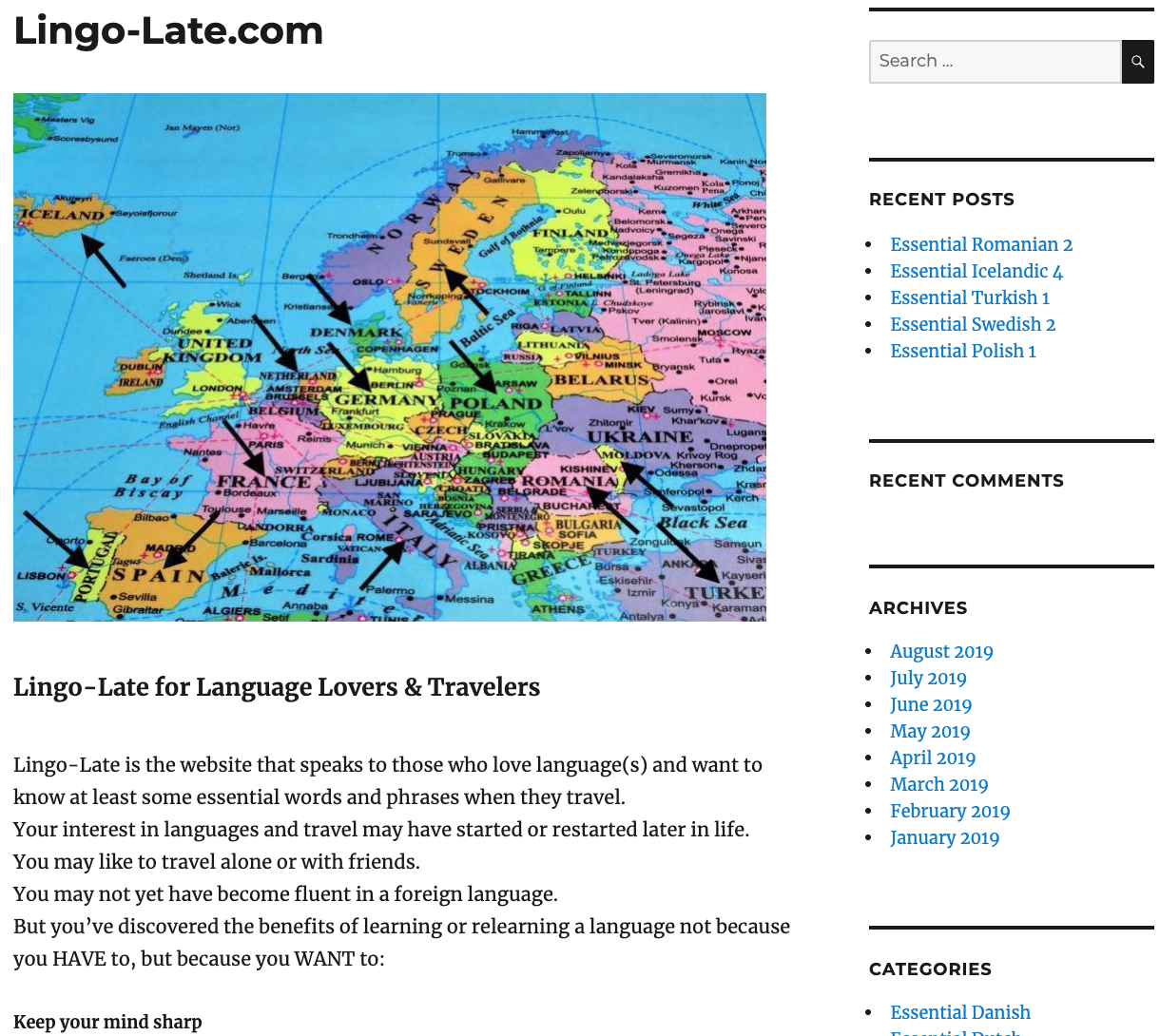 to start our new site, Lingo-late.com, for those who choose #2 above: Travelers who invest a little time to learn and practice just a few useful or “essential” words and phrases.
to start our new site, Lingo-late.com, for those who choose #2 above: Travelers who invest a little time to learn and practice just a few useful or “essential” words and phrases.
What are useful or essential phrases for YOU? We believe that the first +/-10 polite phrases and greetings in a local language could and should be learned by any traveler. They include words and phrases such as:
• Yes
• No
• Thanks/Thank you
• Please
• You're welcome
• Excuse me
• Good morning
• Hello/Good Day
• Good evening
• Goodbye
• Do you speak English (for English speakers)
(You'll find the translations for 12 of the European languages on Lingo-late.com)
What else you then want to learn and practice may depend a little bit how you travel and where to. We took part in a tour to Japan and China, but we have never used organized tours for our travels in Europe. So, for European countries we like to be able to ask “Where is...?” questions.
We do this not only to ask for directions. We have found that politely asking “Where is...?” questions can also be the beginning of a conversation with someone who lives locally. And even if our conversation partner's English turns out to be better than our foreign language skills, we often have a nice exchange. Many times we've ended up with tips and local information that has enriched our stay.
Plus – based on our experience in Denmark – we also like to learn and practice a few of the directional phrases: left, right, straight ahead, around the corner, at the light, etc.
Food and drink items vary quite a bit from country to country. Menus in the big cities often include English or are even multilingual. However, in the countryside, the local language prevails and you may well want to know the foreign names for chicken, fish, snails, clams, beef, tongue, lamb, mutton, tripe, sweetbread - that is, any food or drink items that you may want to order or or want to avoid ordering.
Useful Words and Phrases for Special Circumstances
Obviously, if you just learn a handful of words and phrases, you won't be able to have a conversation in the foreign language. But even you can understand and speak the language, you may come across special circumstances that require you to learn new terms.n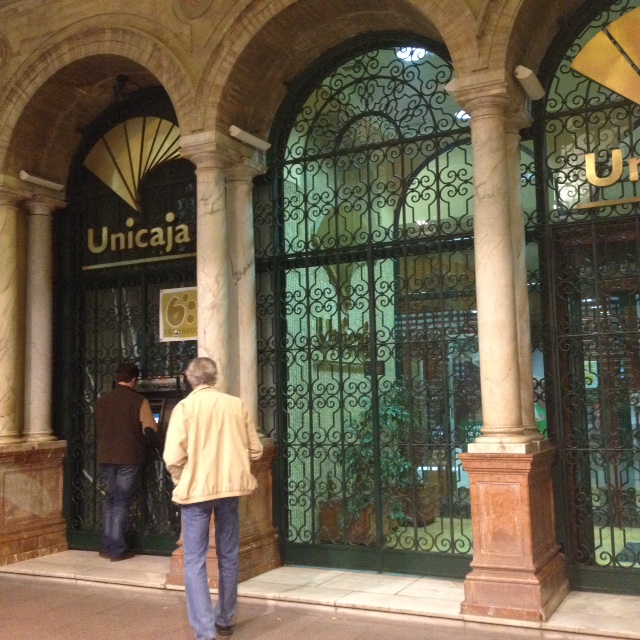 This occurred to us in Seville a couple of years ago. On the way to our apartment after a late dinner, we used a bank's ATM to get cash. However, there was a problem, and the ATM did not dispense the cash to us. The next day though, we saw that our account had been charged Euro 500.
This occurred to us in Seville a couple of years ago. On the way to our apartment after a late dinner, we used a bank's ATM to get cash. However, there was a problem, and the ATM did not dispense the cash to us. The next day though, we saw that our account had been charged Euro 500.
When we tried to explain this in Spanish to a bank official, we realized that we needed to brush up on some banking vocabulary. Nobody in the bank's branch office spoke much English. So it was clearly better to use our Spanish. The branch manager even declared proudly: “No hablo ingles”. You can read more in 5 Tips for Dealing with ATM Troubles Abroad (and at Home).
The Benefit of Useful/Essential Phrases
In a foreign country, using polite phrases and customary greetings in the local language is always a good idea. This is even more so when you leave the big cities and venture out into the countryside or to places that are off the beaten track.
Our best memories from our car trip from Seville to Madrid are visits in towns like Carmona, Almagro, Aranjuez and conversations with locals there. Often these conversations start when we ask for a restaurant, or how to get to a museum or a church. Yes, in some cases we could use our smart phone (if we have Wifi or phone reception), but then we could not practice our foreign words and phrases and have a conversation either – even in English.
a museum or a church. Yes, in some cases we could use our smart phone (if we have Wifi or phone reception), but then we could not practice our foreign words and phrases and have a conversation either – even in English.
Traveling is not just about seeing new sites or monuments. What you'll remember more are the interactions with the people you meet, the conversations you have. Just knowing a few words and phrases in the local language can get you a smile, and sometimes a conversation and valuable local insider tips.
And yes, English may well be the "Lingua Franca" of the World. But you'll never go wrong by learning just a few "essentials" for your next travels.

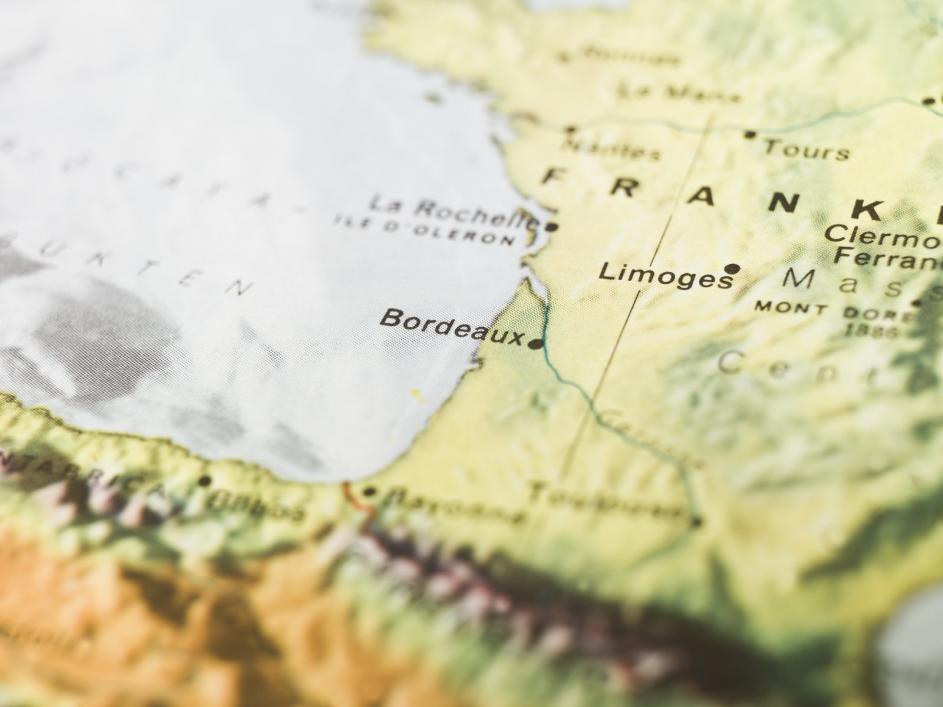 In the fall, we'll be spending two weeks in Bordeaux, France. So, before we get there, I'm super eager to take my French up a notch or two.
In the fall, we'll be spending two weeks in Bordeaux, France. So, before we get there, I'm super eager to take my French up a notch or two. 